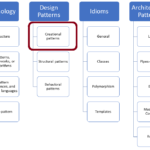Concepts and the Finance Industry
The finance industry is a big user of C++. But as everyone knows, C++ programmers take on a substantial burden of complexity relative to other languages. Why would they do that? In a word: for performance. With C++, you retain full semantic expressiveness without sacrificing any speed. But that complexity can be tough.

But why particularly in finance should such a trade-off be worthwhile? And – to the extent that the big trading companies tend to actually dominate the hiring of top C++ professionals. The answer is very short: “HFT”. Michael Lewis’ book Flash Boys paints the picture well: if a high-frequency trader (that’s HFT) is prepared to tunnel through a mountain for a few milliseconds less latency, they’ll accept a bit of complexity. But there’s a limit. That brings us to the webinar next week:
C++ Concepts and Fireside Chat on Algorithmic Trading

I’m proud to be part of the webinar along with Antony Peacock and Richard Hickling. I’ll be presenting concepts. Let me explain where they come into the financial software picture.
When SFINAE was observed 20 years ago, it set off a revolution: Template Meta-programming was born. Is it the first time a Turing complete programming language has emerged by accident? It was probably in HFT where the excitement was greatest. Now you could program with full expressiveness and have it all executed at compile time. The code running on the trading servers would be optimal machine code.
Unfortunately, however, with it came absurdities. Error messages so long they exhausted compilers’ output limits. Compile times long enough to require grid computing to complete large builds. Solutions to these problems could only be found with language changes. Enter C++20’s keyword concept.
 Modernes C++ Mentoring
Modernes C++ Mentoring
Do you want to stay informed: Subscribe.
In the webinar, Antony will discuss the reality of coding in an HFT environment. I’ll follow that up with a précis on Concepts. Richard will talk about actually getting a job in this exciting area.
Like our previous webinar, we’ll provide plenty of time for questions from the audience.
We’re all very excited to be presenting the webinar and look forward to your participation and questions. Please do sign-up in advance to secure your spot. See you there!
Modernes C++,

Thanks a lot to my Patreon Supporters: Matt Braun, Roman Postanciuc, Tobias Zindl, G Prvulovic, Reinhold Dröge, Abernitzke, Frank Grimm, Sakib, Broeserl, António Pina, Sergey Agafyin, Андрей Бурмистров, Jake, GS, Lawton Shoemake, Jozo Leko, John Breland, Venkat Nandam, Jose Francisco, Douglas Tinkham, Kuchlong Kuchlong, Robert Blanch, Truels Wissneth, Mario Luoni, Friedrich Huber, lennonli, Pramod Tikare Muralidhara, Peter Ware, Daniel Hufschläger, Alessandro Pezzato, Bob Perry, Satish Vangipuram, Andi Ireland, Richard Ohnemus, Michael Dunsky, Leo Goodstadt, John Wiederhirn, Yacob Cohen-Arazi, Florian Tischler, Robin Furness, Michael Young, Holger Detering, Bernd Mühlhaus, Stephen Kelley, Kyle Dean, Tusar Palauri, Juan Dent, George Liao, Daniel Ceperley, Jon T Hess, Stephen Totten, Wolfgang Fütterer, Matthias Grün, Ben Atakora, Ann Shatoff, Rob North, Bhavith C Achar, Marco Parri Empoli, Philipp Lenk, Charles-Jianye Chen, Keith Jeffery, Matt Godbolt, Honey Sukesan, bruce_lee_wayne, Silviu Ardelean, schnapper79, Seeker, and Sundareswaran Senthilvel.
Thanks, in particular, to Jon Hess, Lakshman, Christian Wittenhorst, Sherhy Pyton, Dendi Suhubdy, Sudhakar Belagurusamy, Richard Sargeant, Rusty Fleming, John Nebel, Mipko, Alicja Kaminska, Slavko Radman, and David Poole.
| My special thanks to Embarcadero |  |
| My special thanks to PVS-Studio |  |
| My special thanks to Tipi.build |  |
| My special thanks to Take Up Code |  |
| My special thanks to SHAVEDYAKS |  |
Modernes C++ GmbH
Modernes C++ Mentoring (English)
Rainer Grimm
Yalovastraße 20
72108 Rottenburg
Mail: schulung@ModernesCpp.de
Mentoring: www.ModernesCpp.org



Leave a Reply
Want to join the discussion?Feel free to contribute!